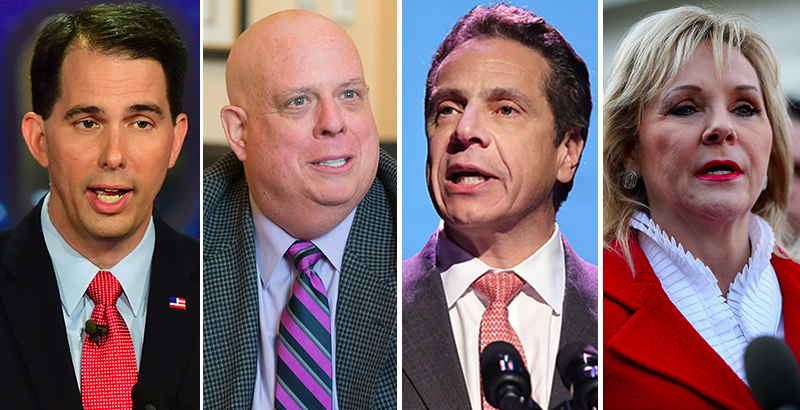This Week’s ESSA News: Why Some Governors Oppose Their Own States’ ESSA Plans, How to Better Communicate Key Policy Issues, and More

This update on the Every Student Succeeds Act and the education plans now being refined by state legislatures is produced in partnership with ESSA Essentials, a new series from the Collaborative for Student Success. It’s an offshoot of their ESSA Advance newsletter, which you can sign up for here! (See our recent ESSA updates from previous weeks right here.)
In The New York Times, Erica L. Green reports that Secretary Betsy DeVos is facing a “surprising source of opposition” as she works her way through state ESSA plan approval: governors. Of the plans thus far approved, “six are from states where the governor refused to sign on: Maryland, Georgia, Wisconsin, Missouri, Louisiana, and New York,” and three others that did not get an endorsement from the governor (Nebraska, Oklahoma, and Kentucky) are “pending approval.” Of the nine governors behind “disputed” plans, seven are Republicans.
On the state front, according to a newly released poll by the University of Southern California and Public Analysis for California Education (PACE), parents actually seem to like the state’s new school report card. Education Week’s Daarel Burnette II reports that, despite initial backlash, Golden State parents “are pretty fond of a redesigned and highly controversial statewide school report card,” released in 2017 as part of California’s ESSA plan. According to the poll, a majority of California parents who are “familiar with the report card” had an “overall positive reaction to its design and components,” though a majority also felt it should include overall ratings for individual schools.
In Delaware, the Department of Education is looking for public feedback on the “data visuals” that will inform its own state report card, which is part of Delaware’s ESSA plan. The online survey, which closes March 1, can be accessed here. And Kevin Richert reports for Idaho EdNews that the Gem State’s “controversial” and ESSA-inspired statewide student survey “is still on for this spring — but the state has switched its survey vendor.” The online survey will occur in April and May.
See below for more ESSA news:
1 PIE Network case studies say implement policy with, not to, educators
A new set of case studies from the PIE Network underscores how, as states transition to implementing ESSA-aligned accountability systems, the way such systems are presented to teachers could have a significant impact on success. Using examples from Louisiana and Tennessee, the case studies highlight how these states worked with educators to champion policy implementation. “By leveraging intentional partnerships with state education agencies,” writes PIE Network’s senior director for communications, standards, and accountability, Laura Mann, “advocates and leaders worked with educators to engage them in the assessment rollout, curbing misinformation and lifting the veil from decision making.” These case studies are based on interviews with state education agency staff and leadership, PIE Network advocates, and involved educators.
2 CEP examines how states share assessment data with key stakeholders
A new report from the Center on Education Policy (CEP) at George Washington University reviews state efforts to share assessment data with key stakeholders such as principals, teachers, and parents. The report — authored by Matthew Frizzell, Diane Stark Rentner, and Nancy Kober — “is based on responses to a 2017 survey that asked state education leaders about efforts to implement” ESSA, in addition to other CEP research data. Topics covered in this report include “providing teachers and principals with state test data,” “training educators in using test data,” “parents and state test data,” and “testing time.”
3 Former KY Commissioner says current state chiefs using ESSA to best serve students
“I served for six years as the commissioner of education in Kentucky, and during my time we implemented bold, innovative reforms that are still in place today,” writes Terry Holliday here at The 74. Now, he says, state chiefs across the country are undertaking similar efforts through their state ESSA plans. Holliday — who served as a Check State Plans peer reviewer for Bellwether Education Partners and the Collaborative for Student Success — also says he was “impressed to see how states are leading to improve education” and notes that the plans look as different as the states themselves. Why? Because they “are designed to be reflections of the priorities in their state.” Given this diversity of approach, Holliday encourages everyone to communicate with their state education departments if they have questions or need more information.
Get stories like these delivered straight to your inbox. Sign up for The 74 Newsletter

;)